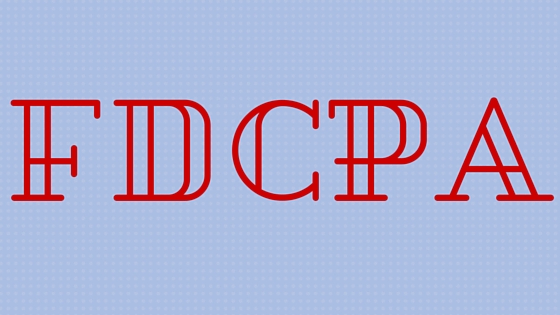A lack of written policies and procedures may have led to a plaintiff being partially granted summary judgment in a case in which a collection agency is alleged to have violated the Fair Debt Collection Practices Act because it used the phrase “your creditors” in a letter sent to the plaintiffs.
A copy of the ruling in Moore v. Express Recovery Service can be accessed by clicking here.
The five debts in question were incurred at two different healthcare facilities over the course of a five-year period. When a collector from the defendant contacted the individual, she ended up speaking with his wife, who indicated the two were married when the last two debts were incurred. The collector added the wife as a responsible party on those two accounts and had a validation notice sent the day after the phone call. However, along with the validation notices, the collector also had an “IQ letter” sent to the wife, which listed all five debts and referenced them as “your creditors.”
The husband and wife filed suit, alleging the IQ letter violated the FDCPA because it did not properly reference the actual creditors. The defendant argued that while not including the names of the creditors was a technical violation of the FDCPA, the collector discussed all five accounts with the wife the day before the letter was sent. And, the defendant argued that if the omission was material, it resulted from a bona fide error.
In looking at cases from the Ninth Circuit and Seventh Circuit Courts of Appeals, the judge in this case ruled that not naming the creditors in the IQ letter constituted a material violation of the FDCPA on the part of the defendant, and even though proper validation letters had been sent and the debts were discussed the day before the letter was sent, “materiality depends on the objective least sophisticated consumer standard, not the recipient’s subjective state of mind,” wrote Judge Tena Campbell for the District of Utah, Northern Division. “The undisputed facts show that the IQ letter failed to name the Moores’ creditors, and that the error could mislead the objective least sophisticated consumer. The Moores are entitled to summary judgment on the issue of materiality.”
In arguing that it made a bona fide error, the defendant noted that collectors are only supposed to send an IQ letter when a payoff has been requested. The chief operating officer of the defendant, during a deposition, said that the company “had no written policy with regard to ‘subsequent notices’ such as IQ letters.” Rather, a manager sat down with new hires and went through each type of letter and what circumstances to send them.
The COO said during her deposition that because the collector failed to follow procedures designed to prevent the error that the bona fide error defense should apply. But the defendant admitted it did not have any written policies or procedures to cover this type of error.
Because the defendant did not meet all three criteria needed to satisfy the bona fide error defense, the judge denied a summary judgment motion from the defendant.









